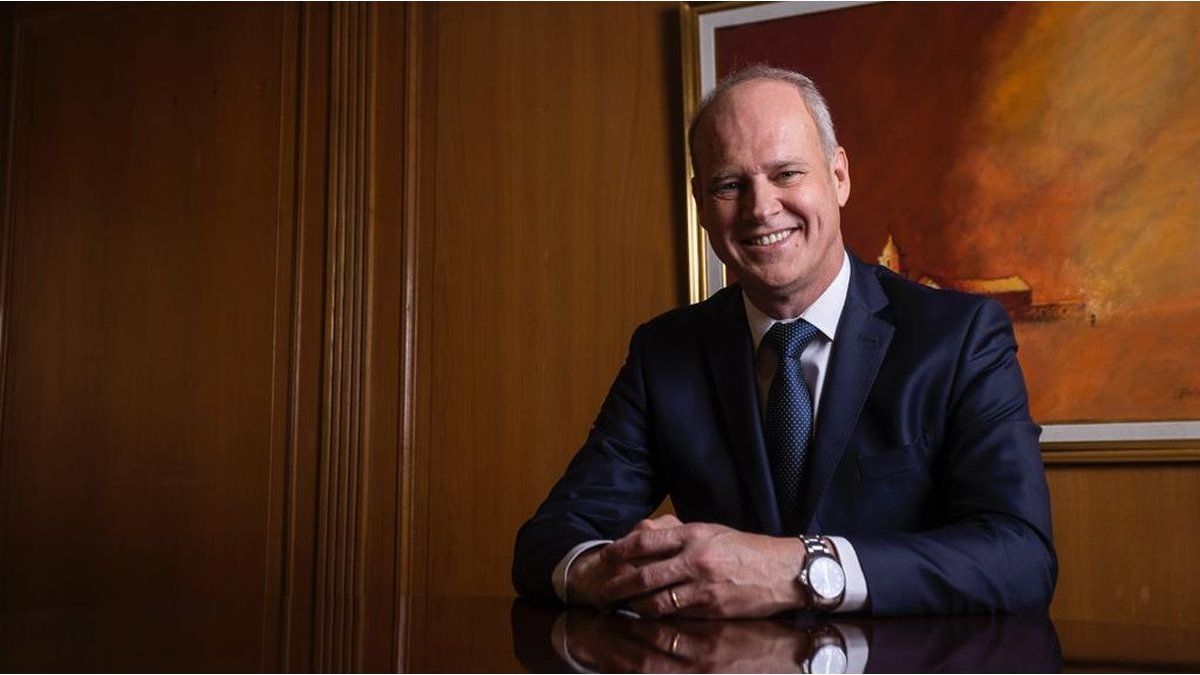In the context of a consistent and credible economic plan, with increased demand for public securities and money, the problem of LELIQ “it is manageable”, held Javier Bolzico, president of the Association of Argentine Banks (ADEBA). In dialogue with Ambit maintained that “It would be a mistake to confuse LELIQ with another problem. The problem is somewhere else, and that is what needs to be resolved, which is the fiscal deficit.”.
Journalist: How is the LELIQ problem solved?
Javier Bolzico: Approximately 50% of the LELIQ are the result of acquisitions of public securities made by the Central Bank. As, in the context of a consistent and credible economic plan, demand for government securities increases again, half of LELIQ operations can be turned around.
Q: Wouldn’t a Bonex Plan be necessary?
J.B.: No. No intervention, using medical language, of a surgical measure is needed. This is totally manageable. Half that way. On the other hand, the demand for money today is close to 3%. Historically, at the worst times it was 6%. Therefore, by minimally recovering the level of confidence in the economy and stability, the demand for money increases, it would double. So, there you have already solved another third of the LELIQ. And the rest is manageable, it is a debt from the Central Bank. So you don’t need a nuclear solution. A Bonex Plan is not necessary. It would be bad practice.
Q: In what time could the scheme you propose be implemented?
JB:As demand for public securities recovers, it could be reversed in a matter of weeks. According to the demand in the market, the Central Bank would sell the public securities rescuing LELIQ. And the demand for money will also be generated, when trust is created, in two or three months. So, it is something that you have to carry with you. The real problem is the fiscal deficit. It would be a mistake to confuse LELIQ with another problem. The problem is somewhere else, and that is what needs to be resolved, which is the fiscal deficit.
Javier Bolzico president of ADEBA
ADEBA
Q: Presumably, if either of the two candidates presented a stabilization plan, wouldn’t it be important for them to announce it as soon as they take office or as soon as they are appointed?
JB: Yes, I think that opportunity is very important and there is not much time. From the beginning it must be the announced plan, it must prove to be consistent and from then on be credible. That is the key to the success of the next administration.
Q.: You at ADEBA made a proposal about the LELIQ, did you make it known to the candidates Massa and Milei?
JB: Yes. We did a study on how we believe this issue can be resolved. We have talked about it with the technical teams of all spaces.
Q: It is always said that the current situation is different from that of 2001, because there is practically no level of private debt. This is so?
JB: It is true, the level of private debt is very low, and the flip side of that is the low degree of banking. So, in that sense, companies are not in debt. Unlike that time, there may be more distortion in relative prices and the fiscal situation is much more delicate, spending is much higher. So, from that side we have to attack the issues. But yes, unlike 2001, the private business sector is better, and especially the banking and financial sector. It is liquid and solvent, it is ready to finance growth, something that did not happen at the end of 2001.
Q: Is it true that we have a very deep crisis, with many imbalances? What is your vision?
JB: I believe that very challenging moments are coming, which will require good practice in terms of government management. Many imbalances must be corrected and they will probably be hard times like all these issues when faced.
The good thing is that, if one looks at the potential of Argentina, both in terms of how the external sector seems to be coming in the next 2 or 3 years, in terms of relative prices of the goods that we produce, our own production, plus the potential of our people and companies, there are reasons to be hopeful after correcting the current imbalances.
Source: Ambito
I am a 24-year-old writer and journalist who has been working in the news industry for the past two years. I write primarily about market news, so if you’re looking for insights into what’s going on in the stock market or economic indicators, you’ve come to the right place. I also dabble in writing articles on lifestyle trends and pop culture news.




